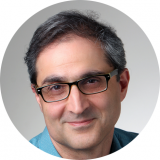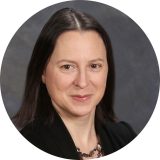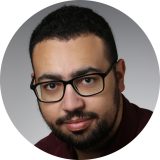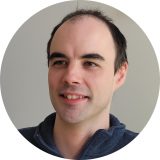Teaching and Learning Services is excited to announce the 2022-23 Future Learning Innovation Fellowship recipients. This program supports faculty members and instructors in the exploration and implementation of new and innovative teaching and learning practices.
The fellowship provides recipients with a stipend and resources to develop and pilot new ideas and tools as well as opportunities for professional development and community building.
TLS is excited to see the impact that this fellowship will have on our students and the Carleton community.
The following individuals have been selected to receive support and resources to develop and pilot their innovative teaching and learning projects:

Vincent Andrisani (School of Journalism and Communication) will onboard and train students to support — and eventually maintain — an ongoing series of audio media projects titled “The Place of Sound.”

Ali Arya (School of Information Technology) will be developing an open multi-platform framework for virtual reality (VR) in the classroom.

Peter Coffman (Art & Architectural History) will be using new technologies and communications tools towards improving the online learning experience in the hybrid classroom.

Jim Davies (Department of Cognitive Science) will be using VR to create a “brain memory palace” to aid in students’ learning and retention.

Brian Greenspan (Department of English Language and Literature) will be using augmented reality (AR) for storytelling in digital humanities.

Leonard MacEachern (Department of Electronics) will be supporting non-AR experts in creating models through photogrammetry.

Elisabeth Gilmore (The Department of Civil and Environmental Engineering) will be implementing peer evaluations of class projects that will enhance the learning experience and support the development of leadership skills for students.

Deanna Whelan (Psychology) will be using peer assessment to fill the skills gap in undergraduate statistics.

Omair Shafiq (School of Information Technology) will be using analytics in Brightspace to foster group work, team building and socialization skills among students.

Ahmed Hassan (The Department of Civil and Environmental Engineering) will be using technology towards the streamlining and improvement of the exam grading process.


Robert Collier and Connor Hillen (School of Computer Science) will be using Brightspace to create first-year assessments to aid in the instruction of Artificial Intelligence (AI) tools and minimize their use in plagiarism.

Kyle Harvey (School of Mathematics and Statistics) will be using a grading and assessment platform (Crowdmark) to facilitate and enrich student assessments.

Doug Howe (School of Computer Science) will be using a grading tool (Gradescope) to automate the grading of programming assignments.
Congratulations to this year’s recipients!
Learn more about the Future Learning Innovation Fellowship.